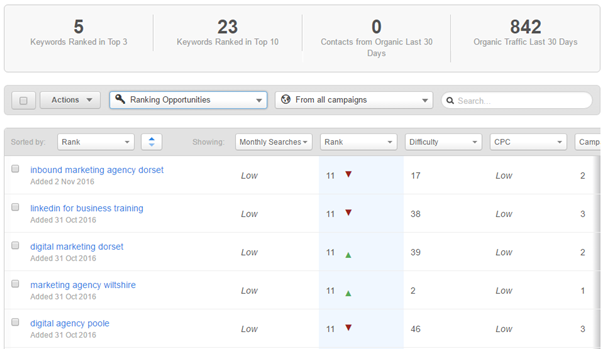How Does Blogging Help B2B Businesses?
If you are an Intergage customer, you have probably heard your Account Manager tell you in every review that you should be blogging. They have probably told you that if you want to rank well in the search engines, then a content strategy built around your target customers is a great idea.
As an agency, we have started taking our own medicine and are regularly producing more than ten blogs per month, but how does blogging enhance B2B marketing?
In a nutshell, blogging really helps you connect with your audience, it makes you a voice of authority and it gets you found in the search engines.
Connecting with your Audience
You’ve probably segmented your audience and worked out who the key personas are that you sell to? If not, that is an essential step on the Marketing Journey.
Once you have a picture of who you are selling to, what their interests, challenges and goals are then you can write articles that will be of interest to them.
This is the Voice of Authority
Your aim whilst blogging is to be constantly thinking about your customers and coming up with ways to educate, entertain and inform them. Do some research – help them understand what is happening in your sector or give them some statistics (although 67.5% of statistics are made up on the spot).
If you write blogs around the issues that your personas experience, then you will not only help them to understand those issues - you will become a voice of authority. You will have earned the right and will be trusted to point at solutions to those issues.
Then, when you offer seminars that explain those issues in more depth or workshops that help them understand further, then you will have a much better chance of converting your visitors into contacts and your contacts into leads.
And at the same time you will be establishing yourself as someone (or a company of people) who produce useful and interesting content that addresses the issues that your audience cares about.
What I find refreshing about all of this is that it is really difficult to fake. You can’t pretend that you genuinely care about your audience if you don’t. Which means that those who don’t, won’t bother with blogging – so those who genuinely want to help improve their customers lives will soar past those that don’t care.
It gets you Found in the Search Engines
Yes, blogging will help your SEO efforts and it will help to bring new visitors to your website.
How do people find your website currently?
People who already know you may type in your brand name or your website URL if they know it. But that doesn’t bring you anyone who didn’t know you already.
Or you could simply pay for a lot of traffic through Pay-Per-Click adverts on Google or through LinkedIn. Whilst you are guaranteed to get clicks and new visitors it’s an expensive way to get traffic to your website. As soon as you stop paying, the traffic will disappear.
Another option is to buy lists of people that you don’t yet do business with. Then you simply ‘pour’ them into your CRM system and send them an unsolicited email inviting them to engage with your business and visit your website.
Even though this last approach has been widely used historically, there are a few problems with it.
Firstly, what do these people know about you and your business? Nothing. And you’ve just sent them an email to ask them to engage with your business. Ask yourself how much you enjoy receiving emails from people that you’ve never heard of.
Not much? Me neither.
Secondly it’s SPAM, and therefore illegal and your company could be fined.
A Much Better Way
If you want to be found in the search engines you will undoubtedly have done some recent keyword research on the phrases that you would like the website to be found for.
Using that knowledge you can start to build ideas for blogs around those keyword themes.
If you have a great Inbound Marketing platform like HubSpot, it can even tell you which keyword phrases you’re ranking highly in search engines for.
So, looking at the above I might choose to write a blog on LinkedIn for Business Training. The website currently ranks in position 11 (top of page 2) for this so with a little effort in a blog shared on social media we might just make it onto page one.
Once my blog is written and published, I need to share it on social media. And everyone in the business should be sharing it too across LinkedIn and anywhere else our target audience hangs out (referring back to our persona research).
Sharing the blog on social media provides Google and the other search engines with the evidence that people like this so much that they want others to see it. Likes are good, shares are even better – it gives the opportunity for more people to read it, comment on it and like it.

Do you ever feel like, “great idea, but where will I find the time to write blogs, on top of everything else?”.
If that’s the case, I would recommend finding yourself a friendly agency with a team of experienced writers who can turn half a dozen bullet points and a ten minute phone call into a well-crafted blog in a couple of hours.
Find out how blogging can fit into your startegy by understanding how inbound marketing works.




